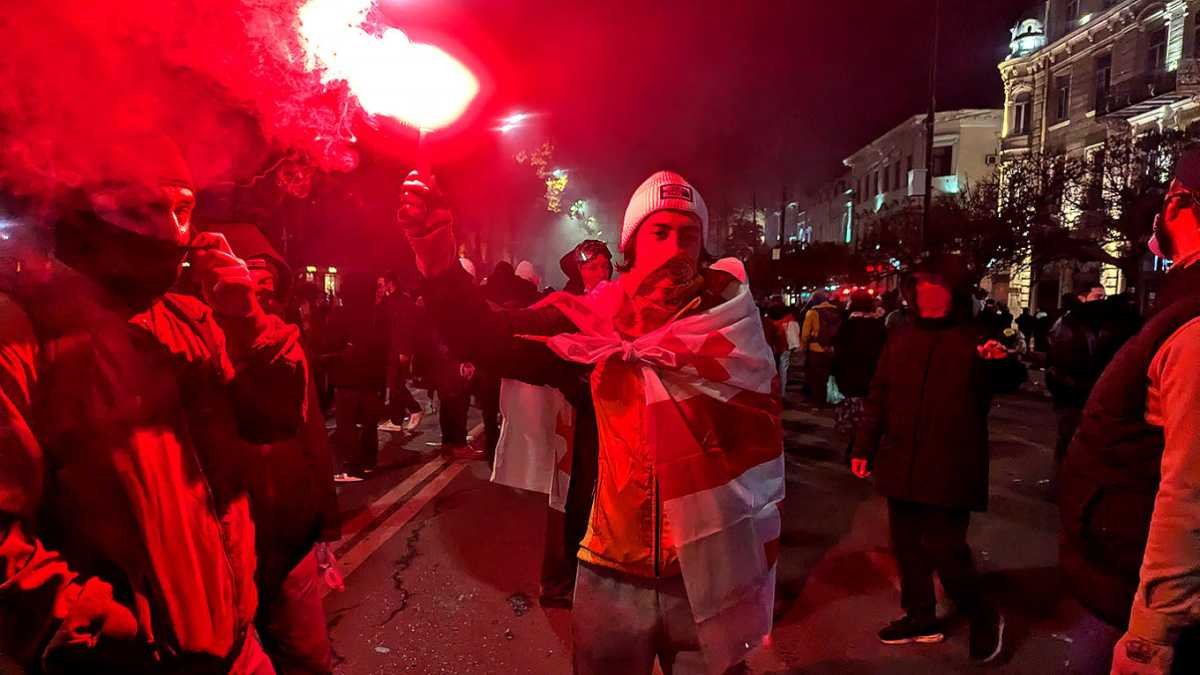Georgia’s Struggle at the Crossroads: Mass Protests Reflect Growing Divide Between Europe and Russia

For six consecutive days, the streets of Georgia’s capital, Tbilisi, have been engulfed in massive protests, as citizens rally against the government’s perceived alignment with Russia and its decision to delay European Union (EU) accession talks until 2028. With a population of 3.7 million, Georgia finds itself at a critical juncture, torn between a pro-European majority and the influence of its powerful neighbor, Russia.
Tensions Boil Over After EU Accession Delay
The unrest began after Prime Minister Irakli Kobakhidze’s announcement to postpone EU membership negotiations. The ruling Georgian Dream party has faced accusations of favoring Moscow over Brussels, igniting public outrage in a nation still scarred by its 2008 war with Russia. That conflict saw Russia recognize the breakaway regions of Abkhazia and South Ossetia, leaving many Georgians wary of any move that could tighten Moscow’s grip.
Protesters, many wearing helmets and masks to protect themselves from violent clashes, have taken to the streets to demand a return to the European path. Tear gas and water cannons deployed by police have been met with fireworks and stones from demonstrators, with over 293 arrests and 147 injuries reported since the protests began.
A Fractured Nation Seeks Freedom Amid Political Turmoil
The Georgian opposition and President Salome Zurabishvili have thrown their support behind the protests, framing the October 26 parliamentary elections as a referendum on the nation’s future. Zurabishvili has called for fresh elections, while critics allege the recent vote was marred by fraud. However, the Constitutional Court dismissed an opposition lawsuit challenging the election outcome, further fueling the unrest.
Georgians see the protests as a fight for freedom. Many fear that failure could lead to the kind of political repression now associated with Russia. “If Georgian Dream suppresses the people, we could face a crackdown like in Russia,” said Sonya, 21, an ethnic Georgian who moved to Tbilisi from Moscow.
Russian Expats Join the Fight for Democracy
The protests have also drawn Russian nationals who fled to Georgia after the Kremlin’s 2022 invasion of Ukraine. These expatriates, many of whom oppose Russian aggression, have found common cause with Georgian demonstrators. Volunteers like Salome, a 35-year-old who moved to Tbilisi from Moscow, distribute hot drinks and food to protesters.
“Everyone thanked them,” Salome said, emphasizing the solidarity among demonstrators despite underlying tensions. Some Russian participants have faced legal consequences, with reports of detentions, court summonses, and at least one deportation to Armenia.
Rising Fears of Russian Intervention
For many, the prospect of Russian intervention looms large. The Kremlin’s spokesman Dmitry Peskov has denied any involvement in the protests, but drew parallels to Ukraine’s 2013-2014 Maidan revolution, suggesting the events are part of a broader effort to destabilize the region.
“I fear Russian intervention if a revolution occurs,” said Daniil, a protester of Georgian-Ukrainian heritage who moved to Tbilisi after Russia’s invasion of Ukraine. His sentiments echo the growing anxiety that Georgia could become another battleground for Russian influence.
Protests Show No Sign of Slowing
Despite brutal crackdowns, Georgians remain steadfast. Thousands continue to march down Rustaveli Avenue, Tbilisi’s main thoroughfare, undeterred by the threat of violence. Protesters gather around makeshift fires, their chants echoing a collective determination to resist what many see as an authoritarian pivot.
As fresh demonstrations are planned, Georgia stands at a pivotal moment in its history, with its future hanging precariously between Europe and Russia. The streets of Tbilisi have become a symbol of defiance, reflecting the resilience of a nation determined to carve its own path.






